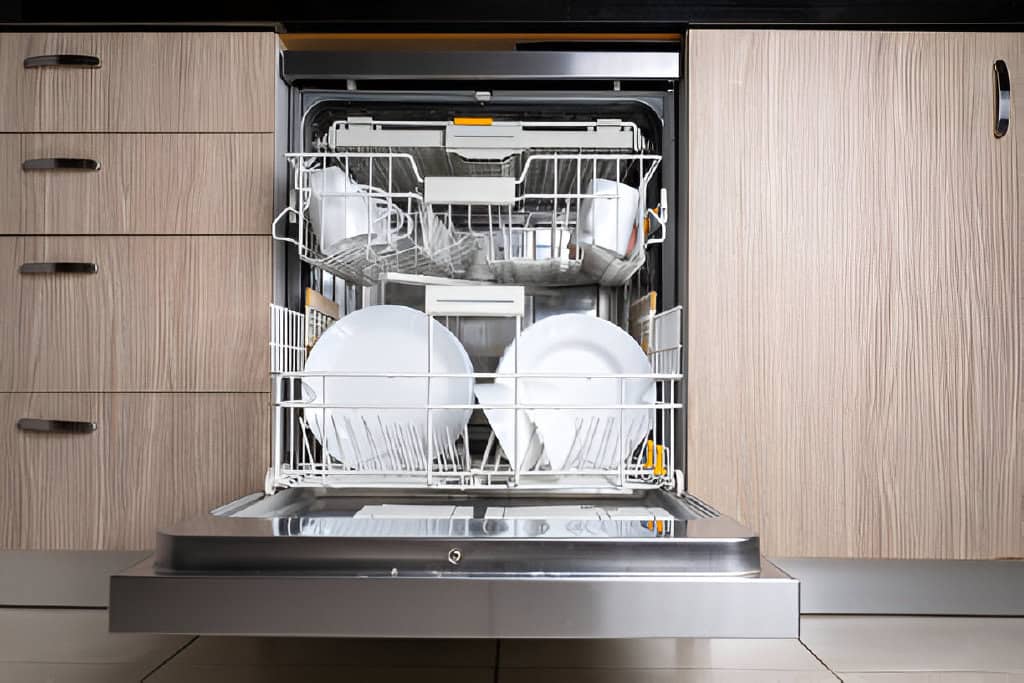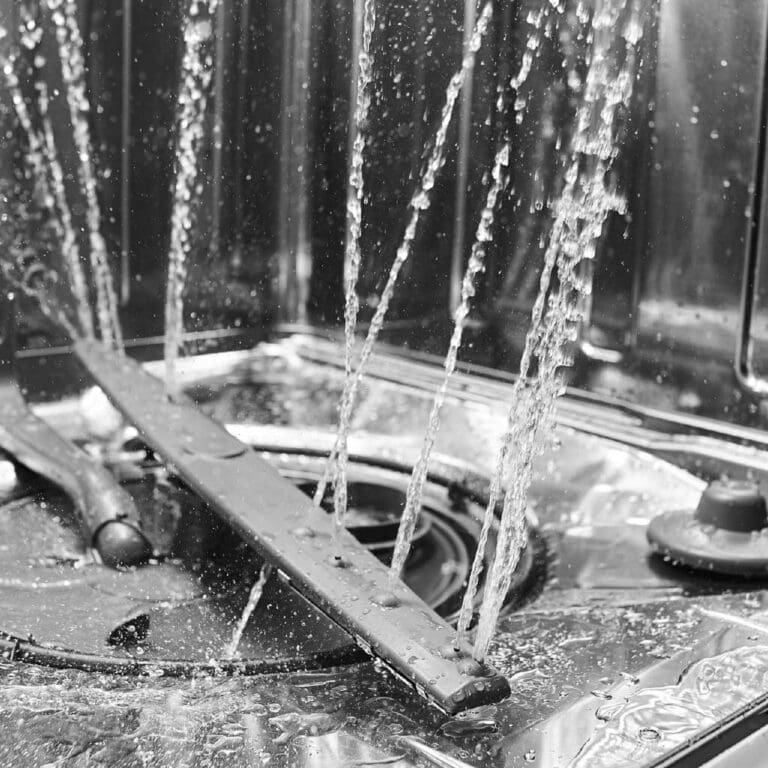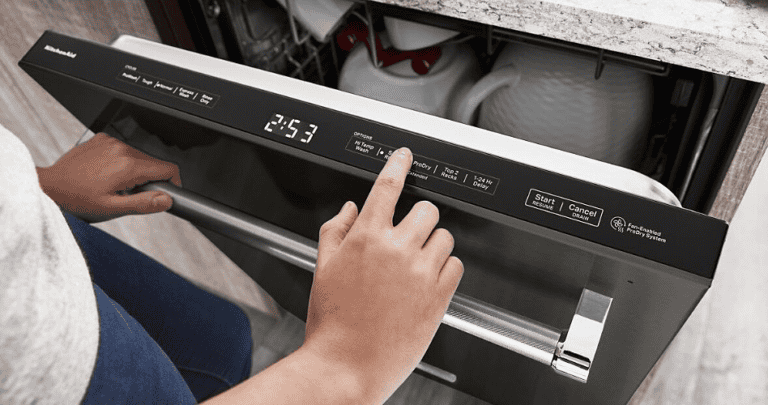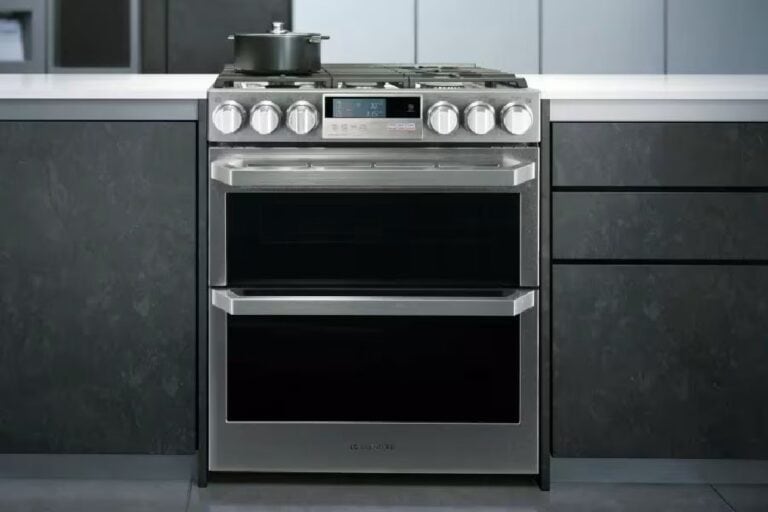Why Doesn’t My Bosch Dishwasher Dry the Dishes?
Are you tired of pulling out soaking wet dishes from your Bosch dishwasher? It can be frustrating to run a cycle, only to find that your dishes are still wet and not properly dried.
Many Bosch dishwasher owners have experienced this issue and are left wondering why their machine isn’t performing as expected.
There are a few common reasons why your Bosch dishwasher may not be drying the dishes effectively. It could be due to an issue with the heating element, a clogged filter, or even the type of detergent you’re using.
Understanding the potential causes of this problem can help you troubleshoot and address the issue so you can enjoy sparkling, dry dishes after each wash.
Why Doesn’t My Bosch Dishwasher Dry the Dishes?
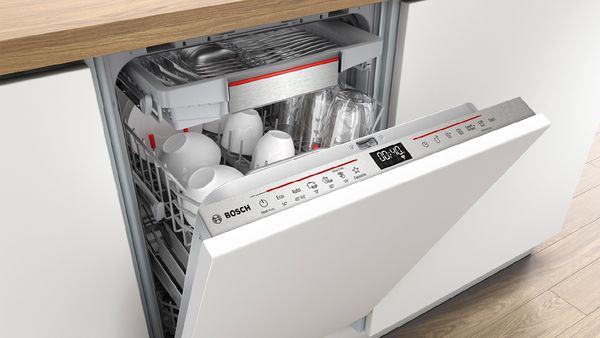
If your Bosch dishwasher is not drying the dishes, there could be several potential reasons behind this issue. Firstly, check the rinse aid dispenser and ensure it has enough rinse aid to aid in the drying process. Additionally, make sure the dishwasher’s heating element is functioning properly, as a faulty heating element can result in ineffective drying.
Blocked or dirty filters might also contribute to the problem. Filters trap food particles and debris, and if they’re clogged, they can impede the dishwasher’s efficiency, including its drying capabilities.
Another possible reason for your Bosch dishwasher not drying the dishes could be due to the dishwasher not completing the drying cycle. To address this, try using a different wash cycle and see if the dishes dry properly.
It’s also important to avoid overcrowding the dishwasher, as this can prevent proper air circulation and hinder the drying process. Overall, troubleshooting these potential issues can help identify the root cause of the problem and allow you to take appropriate action to ensure your dishes are effectively dried after each wash cycle.
| Reason | Solution |
| Malfunctioning heating element | Replace or repair the heating element |
| Empty/malfunctioning rinse aid | Refill or fix the rinse aid dispenser |
| Blocked filters | Clean or replace the filters |
| Incorrect settings | Adjust to a higher drying mode |
These simple checks can often restore your dishwasher’s drying performance.
| You May Also Like: Why Is My Bosch Dishwasher Not Turning On? |
How Do I Fix a Bosch Dishwasher That Doesn’t Dry Dishes?
To fix a Bosch dishwasher that doesn’t dry dishes, start by checking the rinse aid dispenser and refilling it if it’s empty. The rinse aid helps water to sheet off dishes and promotes faster drying.
Next, ensure that the dishwasher’s heating element is working properly by running a diagnostic cycle or visually inspecting it for any signs of damage or wear. If the heating element is faulty, it may need to be replaced to restore proper drying function.
You can also improve drying performance by using the dishwasher’s “Extra Dry” or “Sanitize” options, which increase the temperature and extend the drying time. Additionally, avoid overloading the dishwasher and arrange dishes to allow proper air circulation for more effective drying.
Regular maintenance, such as cleaning the filter and checking the spray arms for clogs, can also help ensure optimal drying performance. Following these steps should help improve the drying results of your Bosch dishwasher.
Utilizing the Correct Wash Cycle Settings
Selecting the appropriate wash cycle for your dishes is essential for achieving optimal cleaning and drying results. Bosch dishwashers come with a variety of cycle options, each designed for specific types of loads and soil levels. Understanding these settings can make a significant difference in performance.
For heavily soiled pots and pans, the “Heavy” or “Pots & Pans” cycle provides higher water temperatures and longer wash times, ensuring thorough cleaning. For everyday dishwashing needs, the “Normal” cycle balances cleaning power and energy efficiency.
If you have lightly soiled dishes or a few delicate items, the “Quick” or “Delicate” cycles are ideal. These use lower temperatures and shorter wash times to prevent damage to fragile items while still providing adequate cleaning.
| Cycle Setting | Best For |
| Heavy/Pots & Pans | Heavily soiled cookware |
| Normal | Regular dish loads |
| Quick/Delicate | Lightly soiled or fragile items |
Choosing the correct cycle not only improves cleaning performance but also extends the life of your dishwasher and dishes.
| Also Read: Why Is My GE Dishwasher Not Getting Water? |
Regular Maintenance Tips for Bosch Dishwashers
Regular maintenance is key to keeping your Bosch dishwasher running smoothly and efficiently. One of the simplest maintenance tasks is cleaning the filters. Bosch dishwashers have multiple filters that trap food particles and debris. These should be cleaned regularly to prevent clogs and ensure water flows freely.
Another important task is checking that the spray arms are working. Over time, small food particles can get stuck in the spray arm holes, affecting water pressure and cleaning performance. Remove the spray arms periodically and rinse them under running water to clear any blockages.
Additionally, wiping down the door seals with a damp cloth helps maintain a tight seal, preventing leaks and ensuring optimal performance. Also, check the rinse aid dispenser monthly and refill it as needed to improve drying efficiency.
| Maintenance Task | Frequency | Purpose |
| Clean filters | Weekly | Prevent clogs and improve water flow |
| Check spray arms | Monthly | Ensure proper water pressure |
| Wipe door seals | Monthly | Maintain tight seal and prevent leaks |
| Refill rinse aid | Monthly | Enhance drying performance |
Regular maintenance not only extends the lifespan of your dishwasher but also guarantees that your dishes are consistently spotless.
| Check out: Why is Water Coming Out of Dishwasher Air Gap? |
When to Seek Professional Help
While regular maintenance can resolve many common dishwasher issues, there are times when professional help is necessary. If your Bosch dishwasher is experiencing persistent problems such as not draining, leaking, or failing to complete cycles, it’s time to consult a qualified technician.
Certain issues, like a malfunctioning control panel or a broken pump, require specialized knowledge and tools to fix. Attempting to repair these on your own can lead to further damage and more costly repairs.
Additionally, professional technicians can accurately diagnose complex problems that aren’t immediately visible, ensuring a thorough solution. They also have access to genuine Bosch parts, which are crucial for maintaining the integrity and efficiency of your appliance.
| Issue | When to Call a Professional |
| Persistent drainage problems | After cleaning filters and checking hoses |
| Leaking water | When seals and connections are intact |
| Cycle failures | If resetting the machine doesn’t work |
Seeking professional assistance not only ensures the job is done correctly but also prolongs the life of your dishwasher, giving you peace of mind.
Final Thoughts
If your Bosch dishwasher is not drying dishes effectively, it could be due to a clogged filter, malfunctioning heating element, low rinse aid levels, or improper loading of dishes.
To troubleshoot, check and refill the rinse aid dispenser, inspect the heating element for damage, and ensure proper dishwasher ventilation.
